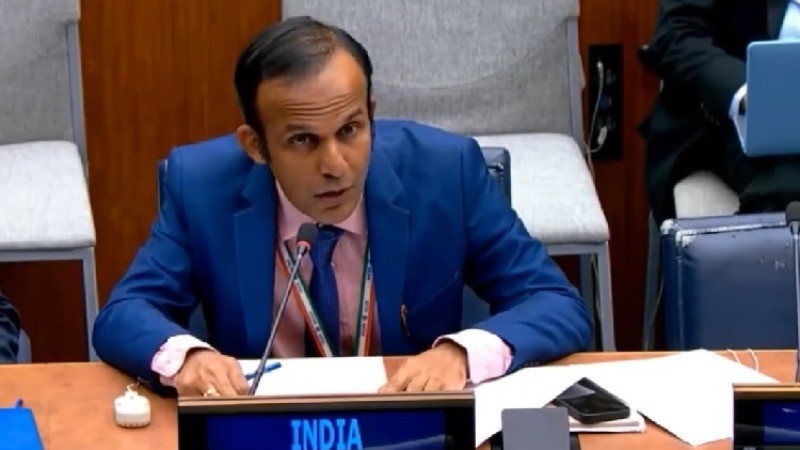
United Nations: In a sharp response to Pakistan, India expressed disappointment at Islamabad’s remarks regarding the recent elections in Jammu and Kashmir. Eldos Mathew Punnoose, a counselor at India’s United Nations Mission, emphasized that Pakistan’s history of holding sham elections left it disheartened by the democratic process in Kashmir.
“Pakistan is familiar with sham elections, the incarceration of opposition leaders, and the suppression of political voices. Naturally, they must feel disappointed to see real democracy at work,” Punnoose stated on Monday.
He referred to comments made by Pakistan’s Permanent Representative, Munir Akram, during a debate at the General Assembly’s Special Political and Decolonization Committee. Punnoose highlighted that last week marked the announcement of election results in Jammu and Kashmir, where millions of voters participated in the democratic process.
“Voters in the Union Territory of Jammu and Kashmir have chosen their leaders according to the constitutional framework and universal adult suffrage. Clearly, these concepts must be foreign to Pakistan,” he said.
The elections, held for the first time since the revocation of Kashmir’s special status in 2019, saw over six million voters cast their ballots. The results favored the opposition coalition of the National Conference and the Congress Party, which dealt a setback to the ruling Bharatiya Janata Party at the national level.
In response to Akram’s claims that the elections were a “sham,” Punnoose urged Pakistan to address its own human rights violations in Pakistan-occupied Jammu, Kashmir, and Ladakh.
“It is ironic that a country notorious for state-sponsored terrorism and transnational crimes questions the integrity of the world’s largest democracy,” he remarked. Punnoose noted that Pakistan has consistently employed cross-border terrorism as a tactic against its neighbors.
He listed several incidents of attacks attributed to Pakistan, targeting Indian Parliament, marketplaces, and religious sites, resulting in numerous civilian casualties. “India stands for pluralism, diversity, and democracy, while Pakistan is known for terrorism, parochialism, and persecution,” Punnoose asserted.
He further criticized Pakistan for regularly targeting religious and ethnic minorities and their places of worship. “It’s essential for Pakistan to reflect on its own situation and address its internal issues instead of interfering in the matters of neighboring countries,” he added.
Punnoose also referenced the challenges faced by Pakistan during its national elections in February, where opposition leader Imran Khan and many supporters were imprisoned, hindering their ability to campaign effectively. The elections, controlled by the military, were marred by violence and disruptions, including cuts to mobile phone services to restrict voter mobilization.
Islamabad to Host 23rd SCO Meeting on October 16, What's on Focus?
SCO Summit: EAM Jaishankar to Arrive in Pakistan. Who Are Other Attendees? What’s on Agenda?
Violence Erupts in Khyber Pakhtunkhwa: 11 Killed in Tribal Clash, Peace Efforts Underway